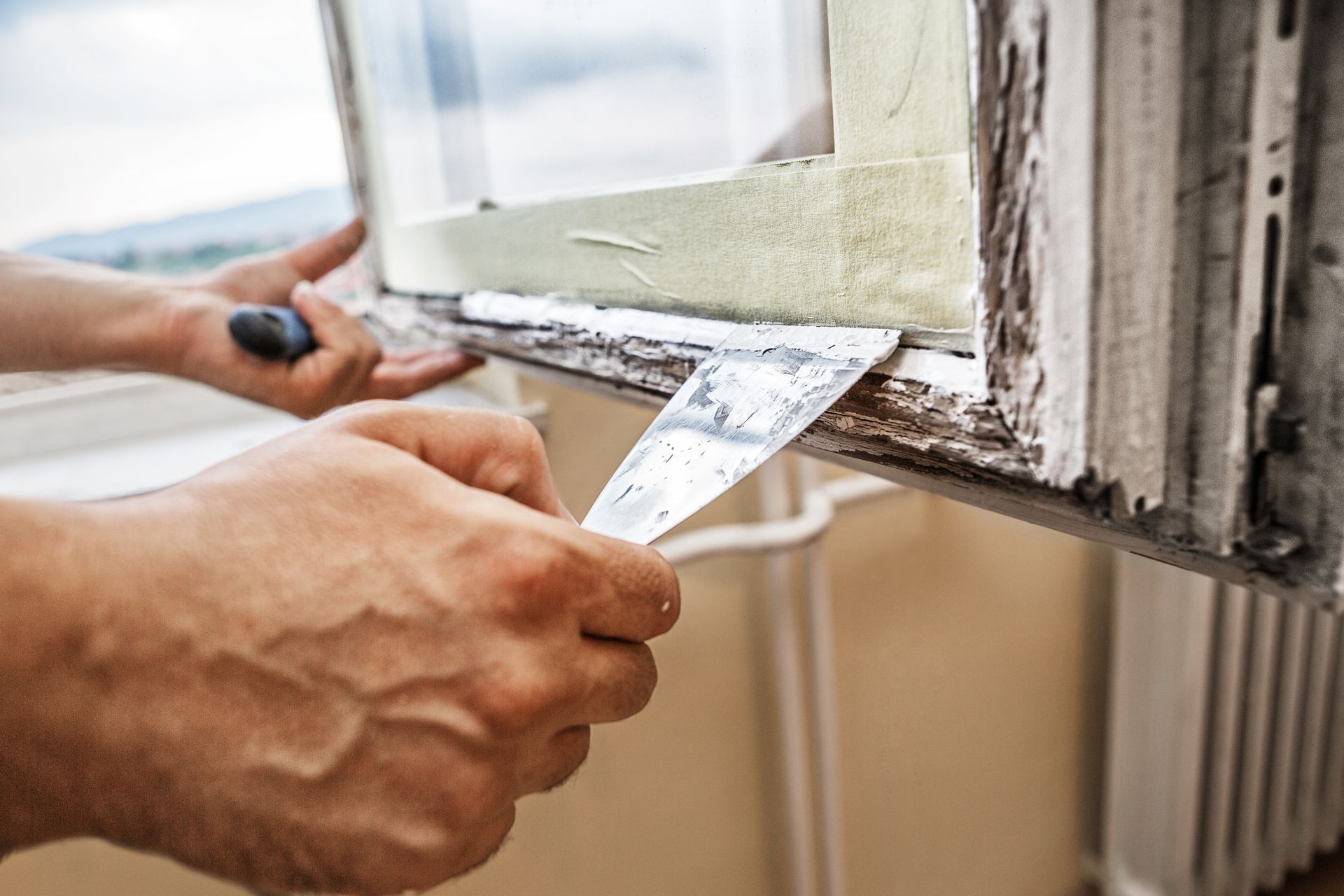
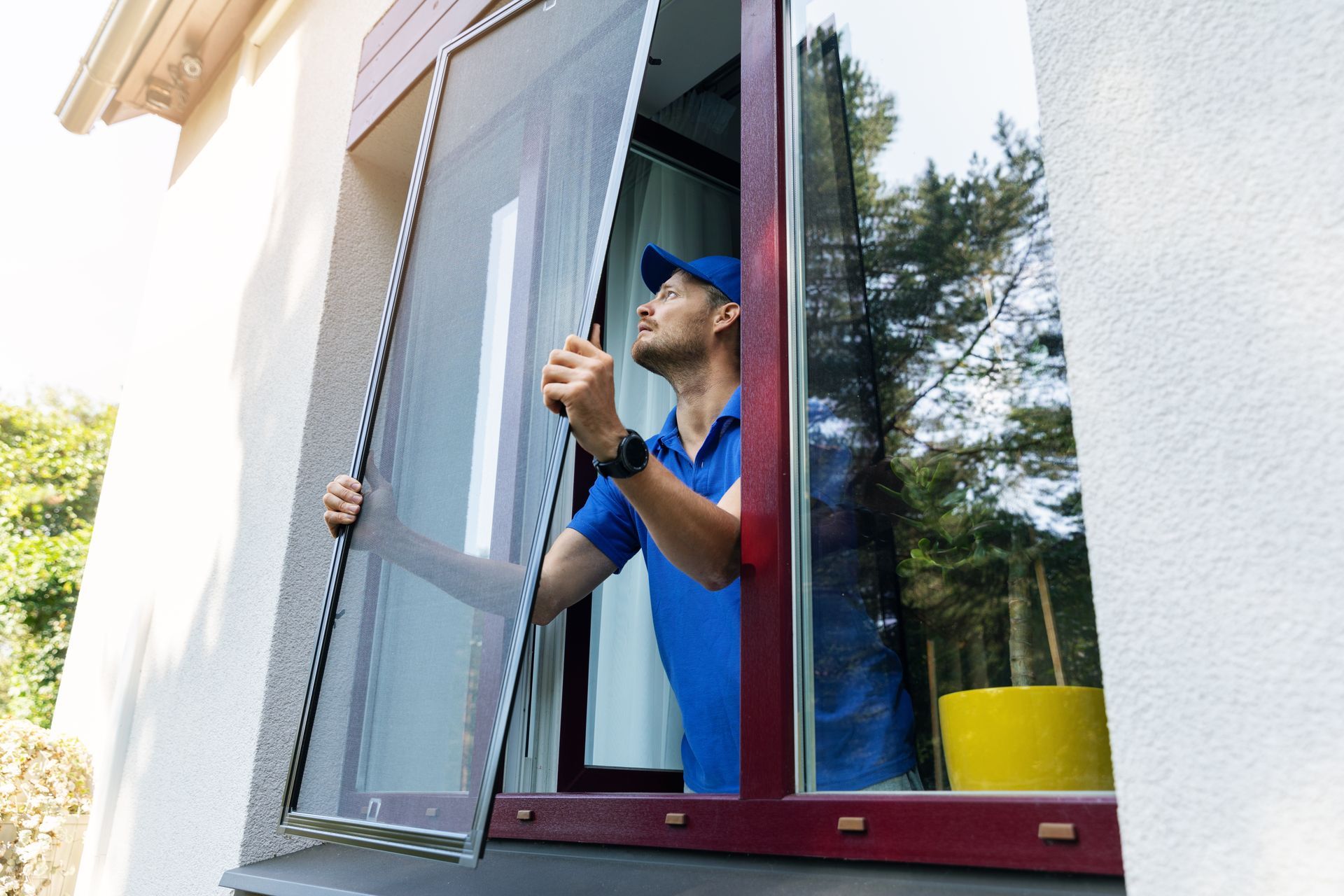
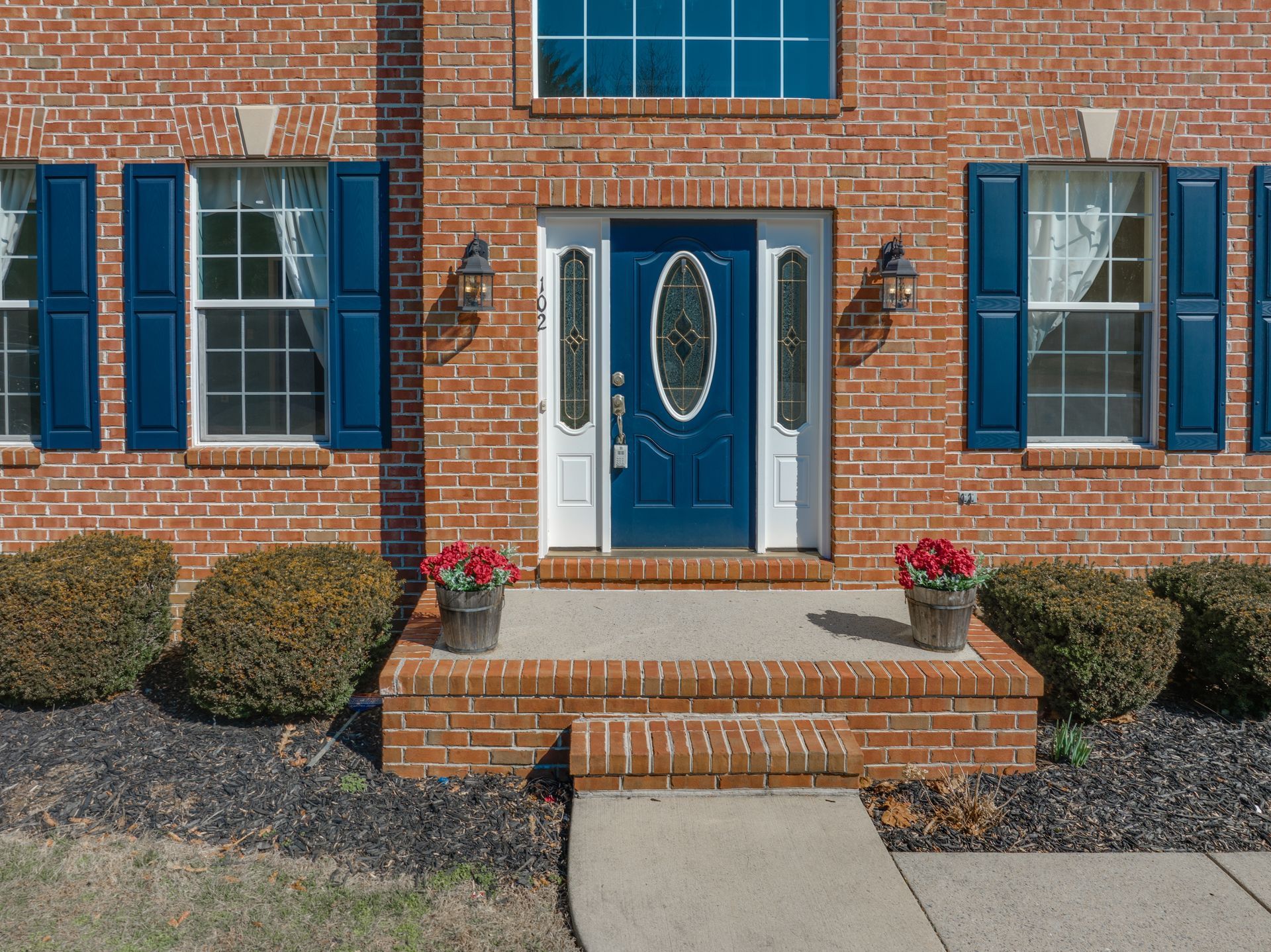

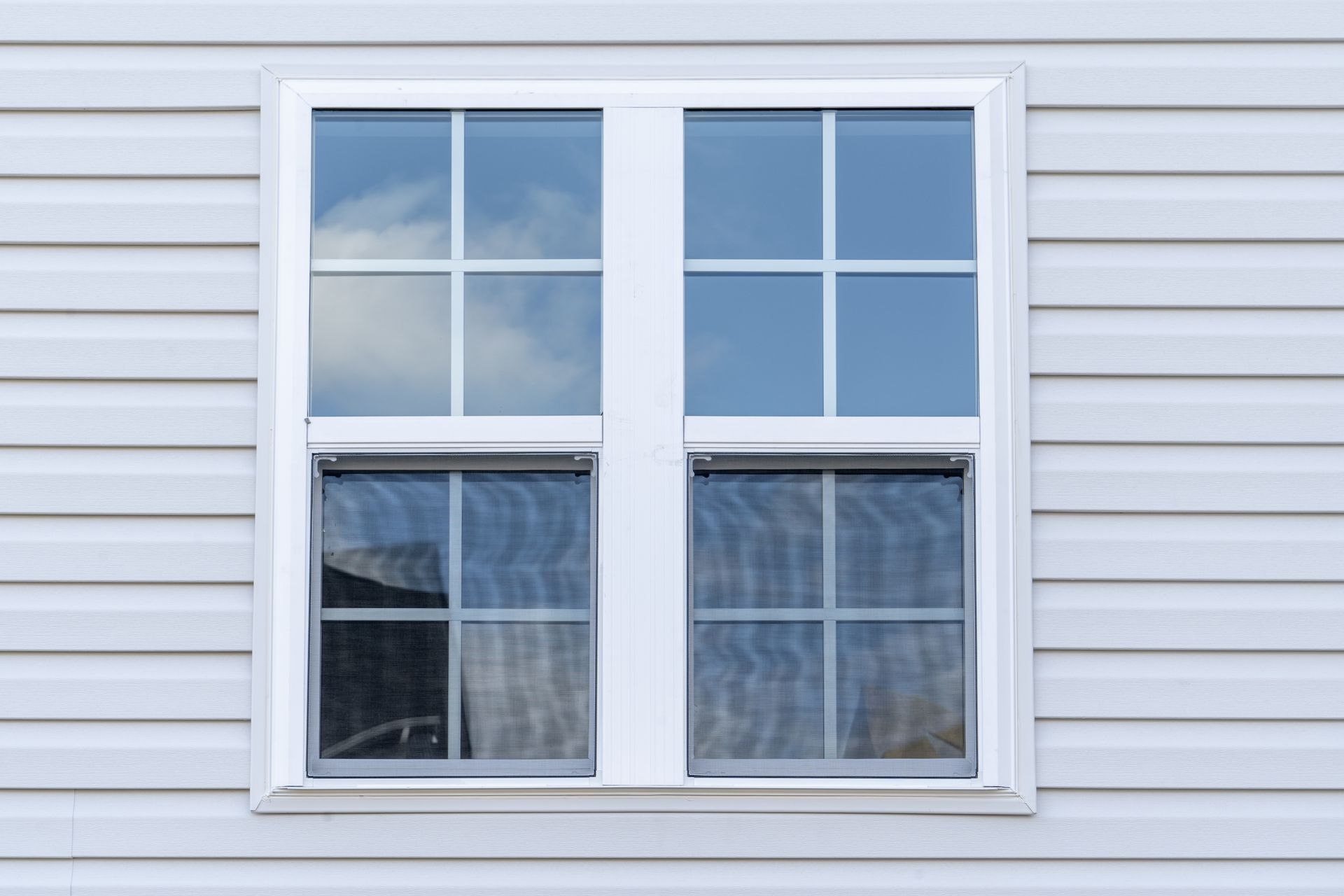
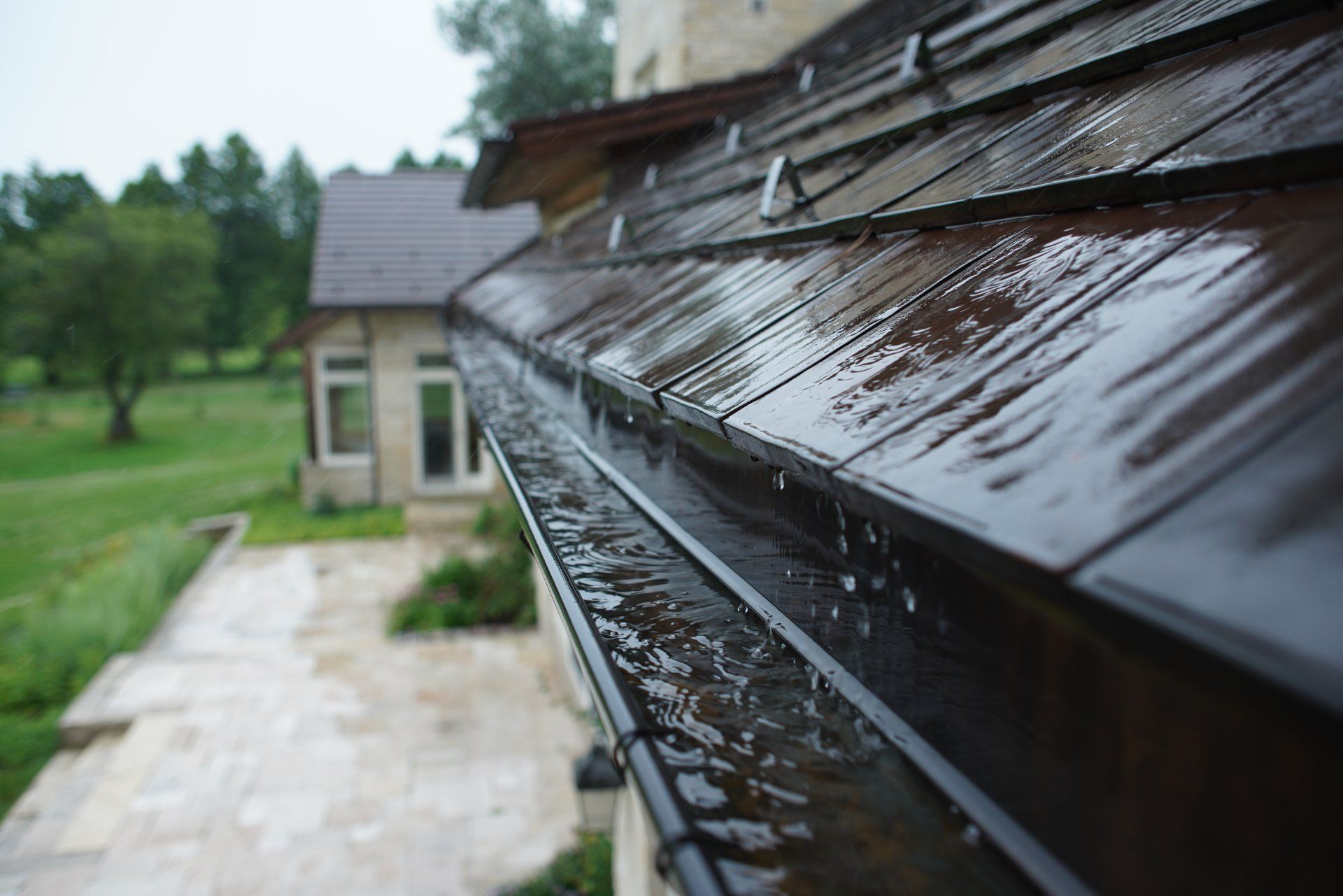
The overflow of your gutters is a problem that can lead to serious damage to your home if left unchecked. Gutters are designed to collect rainwater as it runs off your roof so that the water doesn't seep into the foundation of your home. If there are holes or gaps in your gutters, or if the rainwater isn't flowing smoothly off of your roof and into the gutters, it can cause them to overflow, potentially leaking into your home and causing costly damage.
Today, we'll take a look at 7 possible reasons why your gutters might be overflowing. We'll also discuss some steps that you can take to help ensure that your gutters are working properly and keeping water away from your home.
One of the key reasons why your gutters might be overflowing is that they are damaged. This could mean that they have rusted or cracked and are no longer able to hold water properly, or it could be that the seams between sections of the gutters have become worn out and are no longer able to hold the water.
If you suspect that your gutters are damaged, you should first inspect the gutters for any signs of damage or wear and tear. Look for cracks, holes, rust spots, or other obvious signs of damage. Additionally, you should examine the seams between sections of your gutters to make sure that they are secure and not leaking in any way.
Another common reason why your gutters might be overflowing is that they are clogged with debris, such as leaves and twigs. This can prevent the water from flowing smoothly off of your roof and into your gutters.
To avoid this problem, you should routinely clean your gutters of any debris and check them for signs of blockages. You can do this yourself by safely taking a good look at your gutters and checking to see if there are any clogged areas or leaks. You can also use a hose or a pressure washer to wash away any dirt and debris that has accumulated in your gutters.
If your gutters have been poorly installed, they may not have enough slope or may be too steep. This can result in standing water that then overflows into your home.
To prevent this from happening, check to make sure that your gutters have the proper slope and that they are installed properly by a professional. If you notice any standing water or leaks, your gutters may have been improperly installed and should be replaced or reinstalled.
If your gutters and downspouts are clear of debris, but they are still overflowing, it could be that your downspouts have become blocked. If this is the case, water will not be able to flow from your gutters through the downspout and away from your home.
To prevent this problem, you should check for any blockages in your downspouts. You can do this by visually inspecting the spouts and looking for any blockages such as small branches, large leaves, or even clumps of dirt. If you find any blockages, you can remove them yourself, or you can hire a professional to clear your downspouts for you.
If your gutters are sagging or pulling away from the fascia board on your roof, it can create pools of water that will overflow. This is because these sagging gutters are not able to effectively channel rainwater away from your home.
To prevent this problem, you should check for any sagging in your gutters and repair or replace them as needed. If you are uncomfortable doing this yourself, you can hire a professional to check for any sagging and provide the necessary repairs.
If your roof has an improper pitch or slope, rainwater may not be able to flow off of it and into your gutters. If your roof has a low pitch or slope, standing water may build up over time and eventually overflow into your home.
To prevent this problem, you should check the slope of your roof to make sure that it has a sufficient pitch. If necessary, you can raise the pitch of your roof by having a new, steeper roof installed.
If your gutters are located under a tree, you may run into problems due to leaves and branches that overhang the gutters. These are prone to fall off of the tree and into your gutters, clogging them up and preventing water from draining properly.
To avoid this problem, you should ensure that tree branches and leaves do not overhang your gutters. You can trim back any branches or remove the trees entirely to prevent large amounts of debris from falling into your gutters.
If your gutters are overflowing, water can flow into and around the foundation of your home, which can cause serious damage over time. This water can seep into your basement or crawl spaces and may turn into mold or mildew.
Overflowing gutters can also cause wood rot. This is because water that gets into your home often causes damage to wooden structures, including deck railings and siding. When water is allowed to build up in your gutters, it can also cause rust on metal components. Iron or aluminum gutters, for example, can begin to rust if they are not able to drain the water away from your home.
Finally, overflowing gutters can also cause leaks in your home. This is especially true of older homes that may not have been properly sealed or equipped with modern gutter systems. If your home's windows are leaking, or if they are not properly sealed, this can lead to even more water getting into your home. To prevent this from happening, you may want to consider hiring a professional to replace your windows or seal them properly. This will help ensure that your gutters can do their job and keep your home dry and safe.
There are several simple and cost-effective steps that you can take to prevent your gutters from overflowing. One of the best ways to prevent gutter overflows is to install gutter guards. Installing gutter guards from K-Guard can be a great way to avoid overflowing gutters altogether.
Gutter guards are installed on top of your gutters and have small slits that allow water to flow through but prevent leaves, dirt, and other debris from getting into your gutters. This can help prevent blockages in your gutters and allow water to flow off of your roof at a much faster rate.
Overall, there are several different steps that you can take to prevent overflowing gutters and protect your home from the damage and risks that this can cause. Whether you opt for gutter guards, regular cleaning, or another preventative measure, taking action to keep your gutters in good working order is a smart choice for any homeowner.
There are several ways to determine if your gutters are overflowing. One of the best ways is to observe your gutters the next time it rains. If you see water flowing past the gutters and onto your roof, then chances are good that you have an overflow problem on your hands.
If you notice that your gutters are overflowing or leaking, then it is important to address the problem as soon as possible. At Hanke Brothers, we understand the importance of properly installed and maintained gutters, which is why we offer K-Guard gutter guard installation. Installing gutter guards will be more convenient and less costly in the long run than repairing or replacing your gutters in the future.
To learn more about our guard installation services, please give us a call today at 1-800-401-8139. We will be glad to answer any questions that you may have and help you keep your gutters clean, dry, and free from overflowing. With our help, you can rest assured knowing that your gutters will be able to do their job properly and keep your home safe from water damage.The body content of your post goes here. To edit this text, click on it and delete this default text and start typing your own or paste your own from a different source.
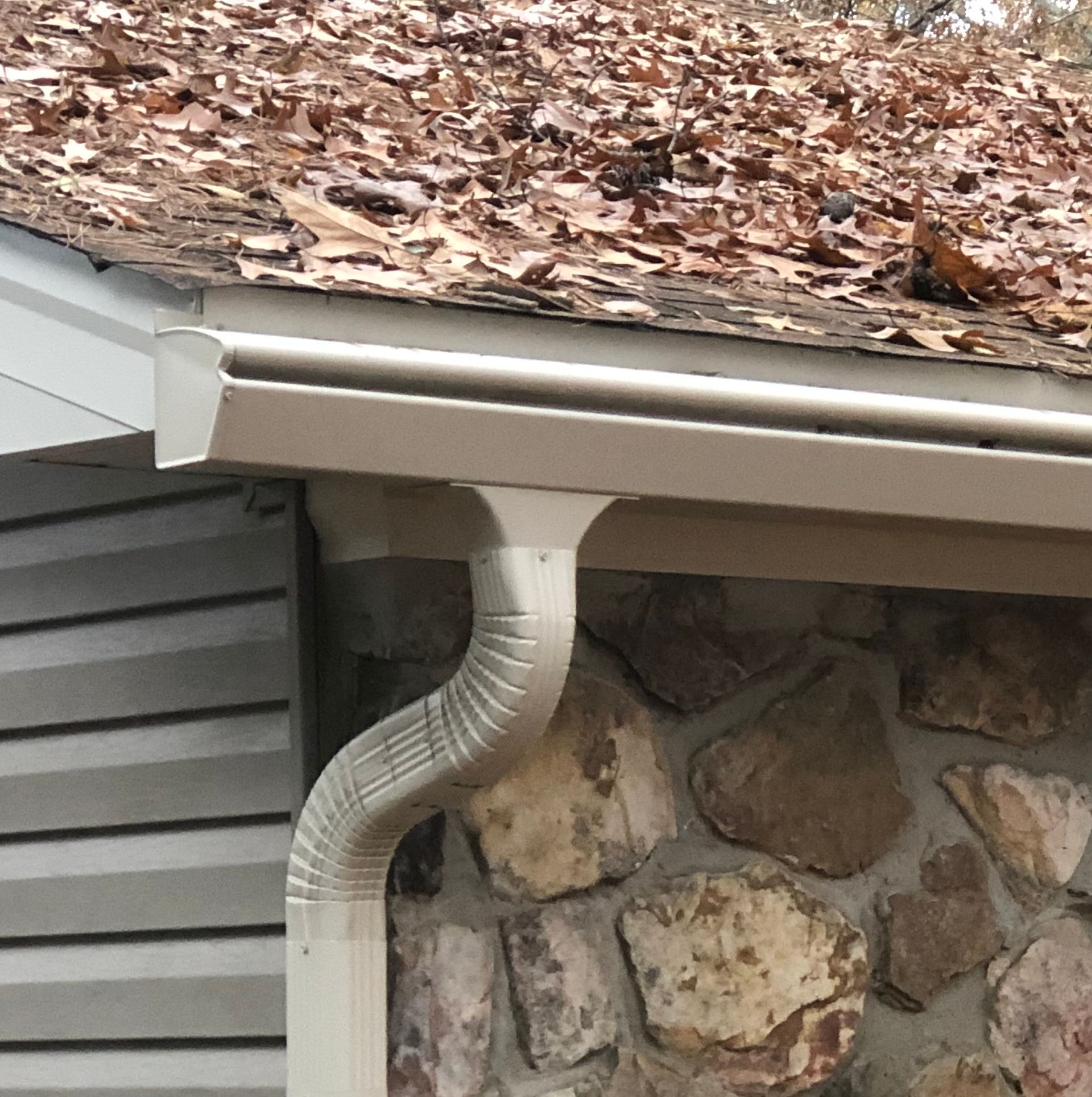

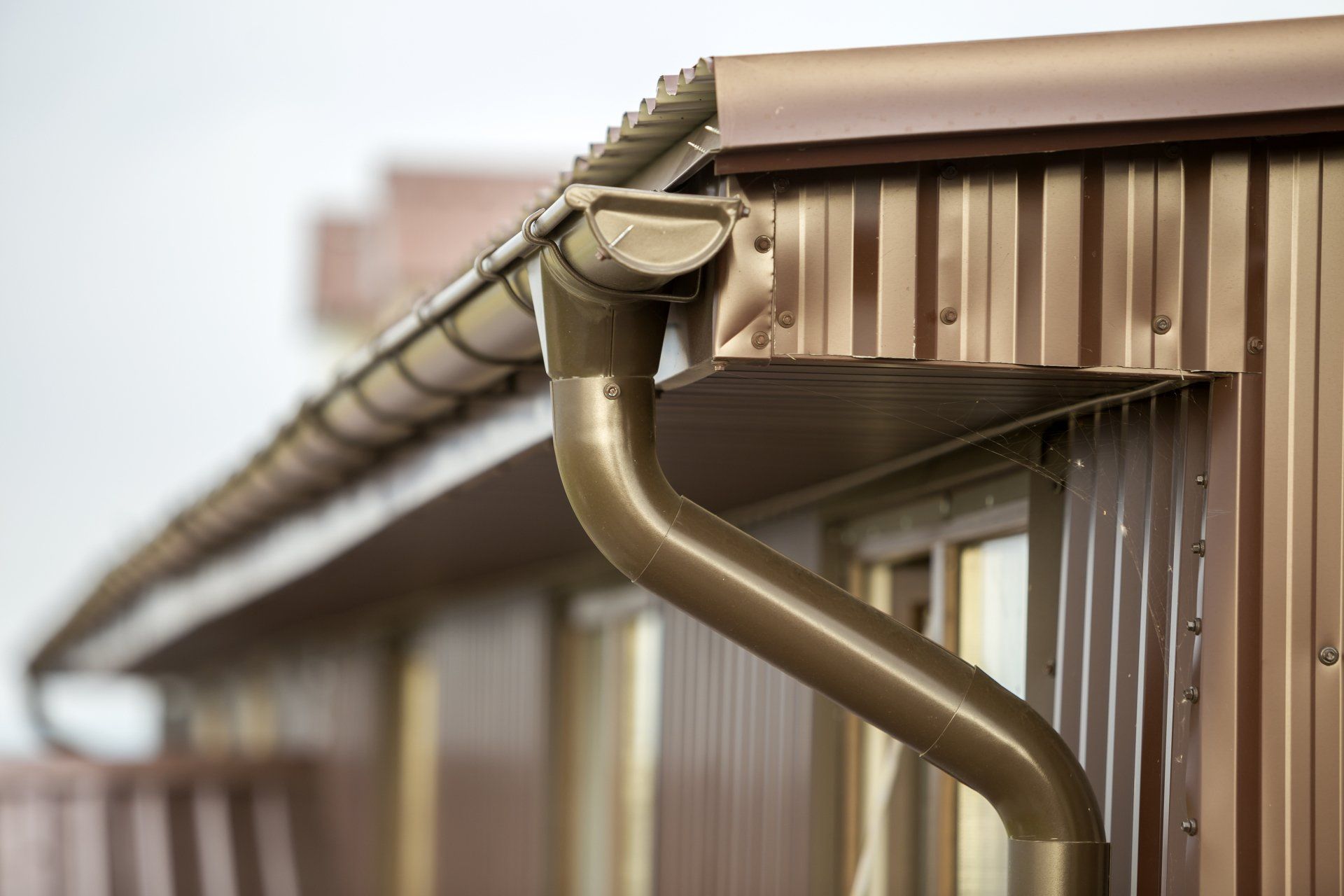

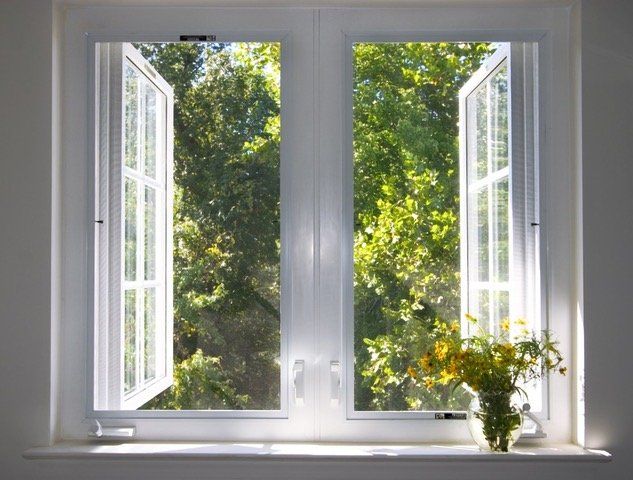



All Rights Reserved | Hanke Brothers | Web Design by Flypaper | Privacy Policy